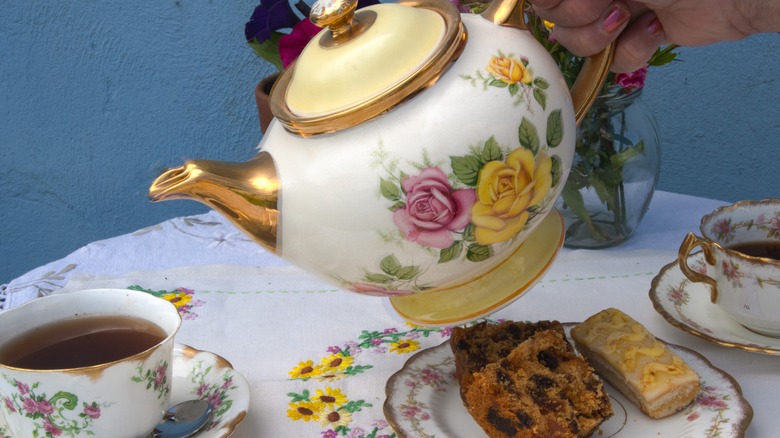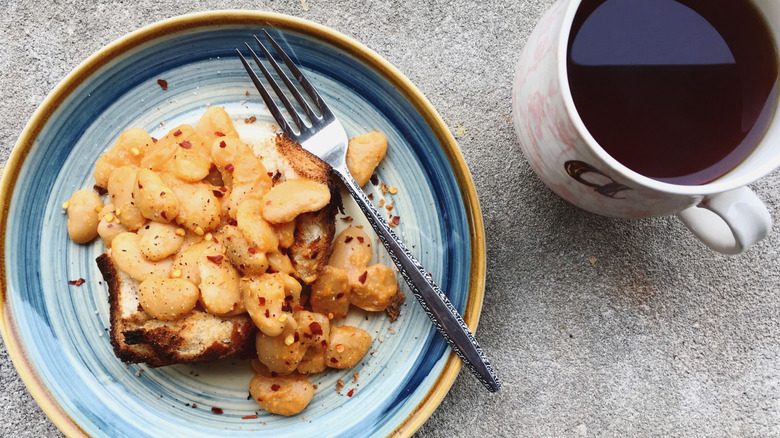The Difference Between High Tea And Afternoon Tea May Surprise You
In the U.S., we have three main meals: breakfast, lunch, and dinner (brunch is just a late, boozy breakfast). In the U.K., these same meals also exist, although there's an additional meal known as tea. The funny thing about tea, though, is it can be one of two very different concepts — either a light snack consisting of a pastry and hot beverage (somewhat akin to a coffee break, only in the afternoon rather than mid-morning) or else a full sit-down meal with hearty dinnertime fare.
You know what's even funnier, though? Despite the fact that many U.S. establishments, attempting to adopt this "fancy" British custom, will proudly tout their elegant "high tea" offerings, high tea is the name given to the latter of the two meals, and it's often used interchangeably with the word dinner. The word "high" doesn't mean high society, high-falutin', or any type of metaphorical elevation, but instead refers to the fact that this meal is typically served at a standard-height dining table. In contrast, the lighter meal, known as afternoon tea, is something you can eat at a short-legged coffee table. Both customs date back to the 19th century, at which time they existed on opposite sides of a great class divide. Afternoon tea was meant to sustain the nobility as they languished in wait for their elegantly late evening meals, while hearty high tea fed the working classes when they got home from their shifts in mines and factories.
What belongs on the menu at each type of tea?
Should you decide to make afternoon tea part of your daily routine, you can stick with something as simple as a cup of the eponymous beverage accompanied by some plain digestive biscuits. To make it more of a special occasion, though, you could also add a scone spread with jam or lemon curd, or even some homemade crème fraîche (which is easier to make than to type, tbh). If you're planning an elegant afternoon soiree, however, you might also want to add some fancy bite-sized pastries like petits fours. Finger sandwiches, too, wouldn't come amiss, transforming the snack into more of a mini-meal called a full tea. Devout Anglophiles may want to stick with watercress or coronation chicken salad sandwich fillings, but if you ask us, all-American pimento cheese like they serve at Augusta National is also tea party-worthy.
For a proper high tea, you need heartier fare. Think bangers and mash, shepherd's pie, fish and chips, or a streaky bacon butty drowning in HP sauce. Beans on toast makes for a pretty classic British high tea, even if it's not a dish that features on many American menus. A British jacket potato, though, is the same thing as an American baked potato. Top the potato with baked beans and cheese (or tuna salad, which is a popular potato topper in the U.K.), and it can take its place as a high tea entree.

